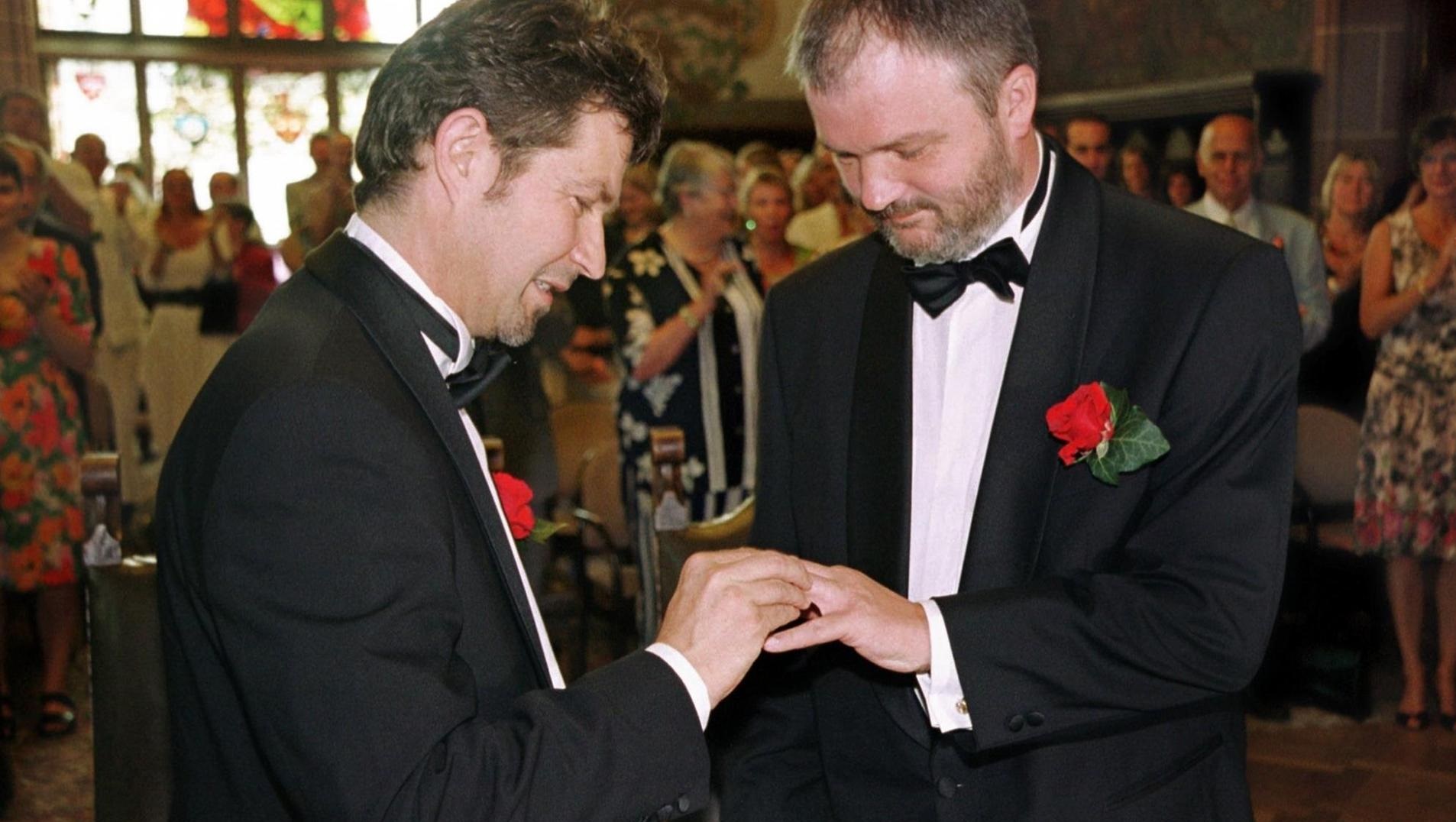October 01, 2017 marked a special turning point in the lives of many same-sex couples. Since then, it has not only been possible for men and women to enter into marriage with each other. The so-called marriage for all replaced the civil partnerships. With this decision, an important step towards equality was realized.
In the past, it was only possible to register one's same-sex love through a civil partnership. Many people spoke of a "second-class marriage" in this context.
Among other reasons, this is because civil partnership options were not even directed at all queers.
Who was excluded from the civil partnership?

Same-sex couples, i.e. gay men and lesbian women, could have their love documented through a civil partnership.
But: People who keep or have kept their gender registration open could not even use this option for themselves. They were not allowed to enter into a civil partnership.
Even in the days of civil partnerships, many people felt that the corresponding options were inadequate. Since marriage for all was introduced in Germany in 2017, a lot has changed. Among other things, it is no longer possible at all these days, to enter into a civil partnership.
Anyone who wants to marry as a same-sex couple can do so via marriage for all. Partnering as in the past is no longer possible today.
By the way, marriage for all is of course not a classic German phenomenon. More and more countries are following suit these days. In Switzerland, for example, a referendum determined that queers have the appropriate options. And even in more distant countries, such as Mexico, same-sex couples or couples from the scene now benefit from marriage for all.
After the civil partnership: What requirements must be met for marriage for all?
The basic requirements that must be met for marriage for all are actually no different from those that apply with regard to classical marriage. This means:
- No more than two people may be involved in the marriage in question.
- Both must be at least 18 years old.
- The partners must not be already married or partnered or related in a straight line.
- The contact for marriage for all is the registry office.
The registry offices provide information about all the documents that must be presented to conclude the marriage.
Is it necessary to have an existing civil partnership converted into a marriage for all?
There are two options here: Those who have already been partnered with each other can either apply for conversion to marriage for all or leave everything as it is and continue the civil partnership. However, it should be noted that civil partnership and marriage for all are not the same. In the case of civil partnership, there is no protection via the Basic Law. In addition, there are restrictions with regard to adoptions.
The couples in question must also contact the relevant registry office for the conversion. The local staff will then explain exactly which documents must be presented.
In this context, it is particularly interesting how differently same-sex couples repeatedly deal with conversions of this kind. For some, it is merely a classic administrative act. Some, however, celebrate the day of the conversion of the civil partnership into marriage for all as something very special and invite friends and family. As with the classic wedding, everyone celebrates the "most beautiful day in life" differently.
One thing is certain: Saying goodbye to civil partnerships and saying "YES!" to marriage for all is seen by many as one of the most important steps on the path to more equal rights for the queer community.

Mega interesting read the posts really like much new here.